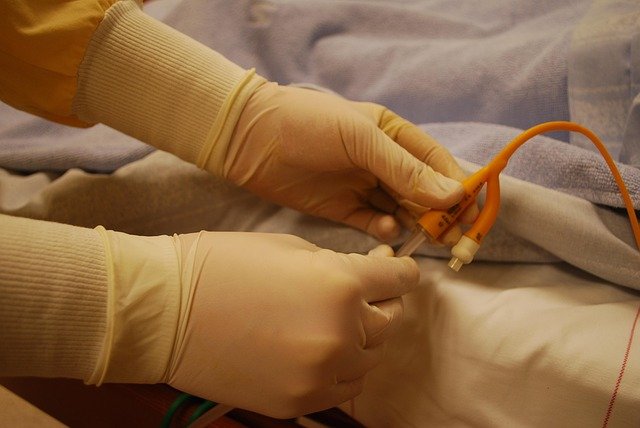Cancer Treatment: Navigating Options for Effective Care
Cancer remains one of the most challenging health issues of our time, affecting millions of lives worldwide. However, advancements in medical science have led to an array of treatment options that offer hope and improved outcomes for many patients. This article explores the landscape of cancer treatment, discussing various therapies, care centers, and considerations for those facing this difficult diagnosis.

What are the main types of cancer treatment?
Cancer treatment typically falls into several primary categories. Surgery is often the first line of defense, aiming to remove tumors and affected tissues. Chemotherapy uses powerful drugs to kill cancer cells throughout the body, while radiation therapy targets specific areas with high-energy beams. Immunotherapy harnesses the body’s own immune system to fight cancer cells, and targeted therapy focuses on specific genes or proteins that contribute to cancer growth.
More recently, precision medicine has emerged as a promising approach, tailoring treatment plans to the genetic profile of each patient’s cancer. This personalized strategy can lead to more effective outcomes with potentially fewer side effects.
How do doctors determine the best cancer treatment plan?
Developing a cancer treatment plan is a complex process that considers multiple factors. Oncologists evaluate the type and stage of cancer, the patient’s overall health, and specific genetic markers of the tumor. They also consider the potential side effects of various treatments and how they might impact the patient’s quality of life.
A multidisciplinary team often collaborates to create a comprehensive treatment strategy. This team may include surgeons, medical oncologists, radiation oncologists, and other specialists who bring their expertise to bear on each unique case. Patient preferences and goals are also crucial in determining the most appropriate course of action.
What role do cancer care centers play in treatment?
Cancer care centers are specialized facilities designed to provide comprehensive cancer treatment and support services. These centers often house state-of-the-art equipment and bring together teams of experts across various oncology disciplines. Many are affiliated with research institutions, offering patients access to clinical trials and cutting-edge therapies.
Care centers typically offer a range of services beyond medical treatment, including nutritional support, psychological counseling, and palliative care. This holistic approach addresses not only the physical aspects of cancer but also the emotional and practical challenges faced by patients and their families.
How has cancer therapy evolved in recent years?
The field of cancer therapy has seen remarkable advancements in recent years. Immunotherapy, once considered experimental, has become a standard treatment for many types of cancer. CAR T-cell therapy, a form of immunotherapy that involves genetically modifying a patient’s own immune cells, has shown promising results in treating certain blood cancers.
Targeted therapies have also made significant strides. These drugs are designed to interfere with specific molecules involved in cancer growth and spread, often resulting in more effective treatment with fewer side effects compared to traditional chemotherapy. Additionally, improvements in imaging technologies have enhanced the precision of radiation therapy, allowing for more accurate targeting of tumors while sparing healthy tissue.
What should patients consider when choosing a cancer treatment facility?
When selecting a cancer treatment facility, patients should consider several key factors. The expertise and experience of the medical team in treating their specific type of cancer is crucial. Patients may want to inquire about the center’s access to clinical trials and advanced technologies, as these can offer additional treatment options.
Accreditation from recognized organizations, such as the Commission on Cancer, can be an indicator of high-quality care. The availability of support services, including nutritional counseling, psychological support, and palliative care, is also important for comprehensive treatment. Patients should also consider practical aspects such as location, insurance coverage, and the ability to coordinate care with their primary healthcare providers.
How do costs and insurance coverage impact cancer treatment decisions?
The cost of cancer treatment can be a significant concern for many patients and their families. Treatment expenses can vary widely depending on the type of cancer, stage of disease, and chosen therapies. While many cancer treatments are covered by health insurance, out-of-pocket costs can still be substantial.
To provide insight into potential costs, here’s a comparison of average expenses for common cancer treatments:
| Treatment Type | Average Cost Range | Typical Duration |
|---|---|---|
| Chemotherapy | $10,000 - $200,000 | 3-6 months |
| Radiation Therapy | $20,000 - $80,000 | 4-8 weeks |
| Surgery | $15,000 - $80,000 | One-time procedure |
| Immunotherapy | $100,000 - $200,000 | 1-2 years |
| Targeted Therapy | $6,000 - $12,000/month | Ongoing |
Prices, rates, or cost estimates mentioned in this article are based on the latest available information but may change over time. Independent research is advised before making financial decisions.
Insurance coverage plays a crucial role in treatment decisions. Most health insurance plans cover standard cancer treatments, but newer therapies or clinical trials may have limited coverage. Patients should work closely with their healthcare providers and insurance companies to understand their coverage and explore financial assistance programs if needed.
The financial aspect of cancer treatment underscores the importance of comprehensive insurance coverage and the potential need for healthcare reform to ensure that all patients have access to necessary treatments without facing financial ruin.
In conclusion, cancer treatment is a complex and evolving field that offers numerous options for patients. From traditional therapies to cutting-edge treatments, the landscape of cancer care continues to expand, providing hope and improved outcomes for many. As research progresses and new therapies emerge, patients and their healthcare teams can work together to navigate the best course of treatment, considering both medical efficacy and quality of life.
This article is for informational purposes only and should not be considered medical advice. Please consult a qualified healthcare professional for personalized guidance and treatment.
The shared information of this article is up-to-date as of the publishing date. For more up-to-date information, please conduct your own research.




